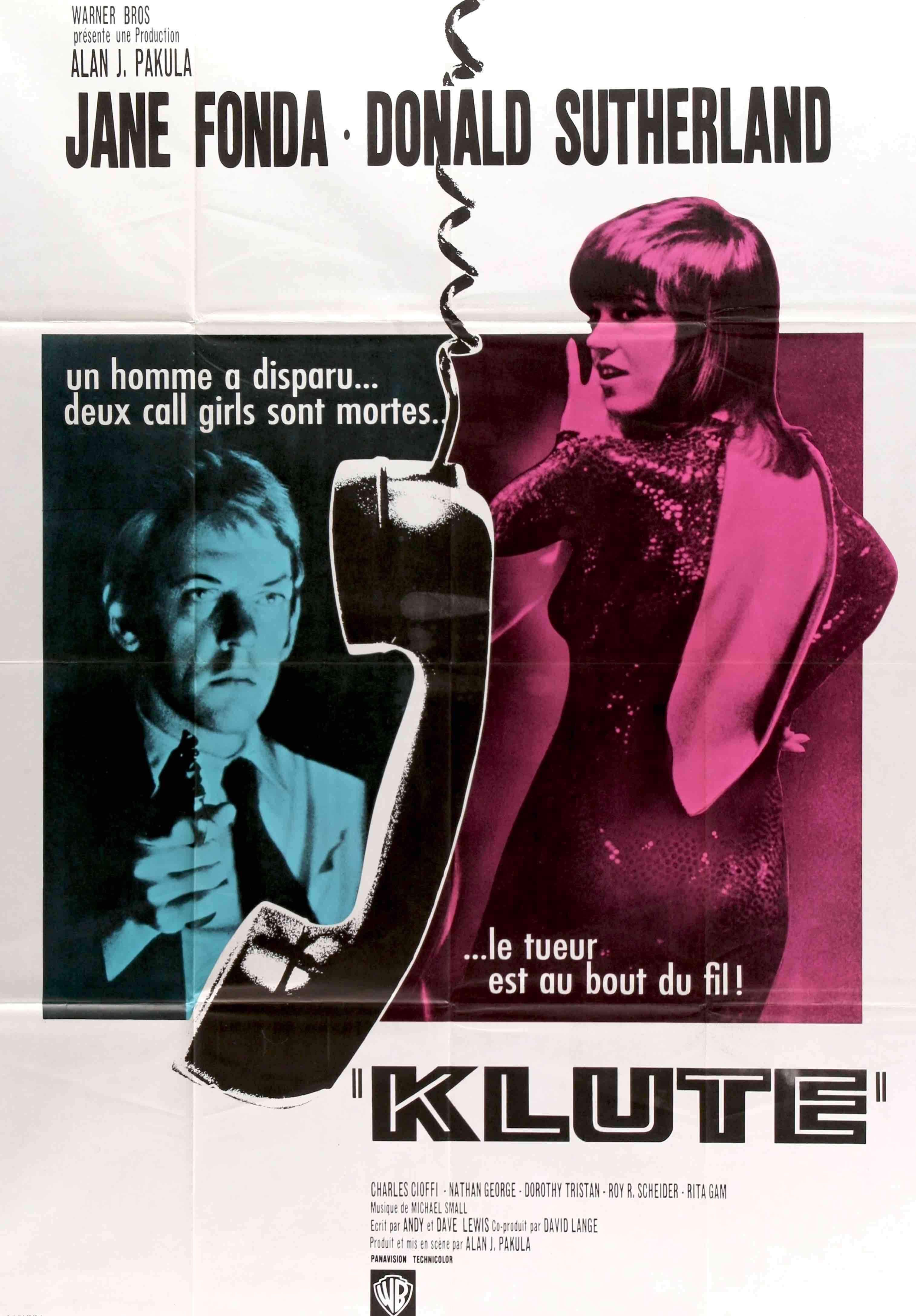Director: Adam J. Pakula
Screenwriter: Andy Lewis, Dave Lewis
Produced/Distributed by: Warner Brothers
Starring: Jane Fonda, Donald Sutherland
Why Now? Christopher Nolan’s Tenet, a science-fiction political thriller, was set to finally be released in August 2020. Unfortunately, while that is no longer the case in the US due to the virus (now it’s coming September 3rd), the film will still be released worldwide on August 26th. So in honor of this much anticipated thriller, I will be watching films from that genre.
Why This Film? I am a big fan of director Adam J. Pakula’s thriller All the President’s Men (1976) , and having previously heard that that film and this week’s entry are both part of the “paranoia” trilogy, I wanted to check Klute out.
What Did I Know About the Film? Practically nothing, other than it stars Jane Fonda and Donald Sutherland. I’m going into this film almost completely fresh.
Post-Screening Synopsis:
Following the disappearance of a high profile chemical company executive, his family friend and private detective John Klute (Donald Sutherland) is tasked with with finding him. The only assistance he has is a high priced call girl named Bree Daniels (Jane Fonda), who may or may not have played a role in the executive’s disappearance.
Praise:
Klute is a good example of a subversive, neo-detective thriller–like The Long Goodbye (1973)– that breaks down the tropes of classic films from earlier decades.
Donald Sutherland’s John Klute, unlike say, Bogart’s Sam Spade, is a much more diminutive, awkward character who struggles to find the right words, who is shy and reserved in most situations. Like Spade, he is not the most handsome, or strongest man, but he is a very good private detective.
Jane Fonda’s Bree Daniels, who can be considered more of the main character than even Klute, is this film’s closest estimation to a femme fatale. However, even though she’s a prostitute who has an outward strong personality, she is also fragile, and is regularly shown to be in therapy (something you would not have seen in older films).
In all, the characters come across as real, average people, mostly unremarkable (in a good way).
The film is very gritty and bare, set in a dirty 1970s New York that is both claustrophobic and cold. The atmosphere is eerie, and the scenes linger a little too long before quick, jarring jump cuts. The era appropriate score is also a good juxtaposition to the overall air of the film, hinting that things are not quite right. A lot of the film is told through the cinematography and filmmaking as opposed to the character’s dialogue. It is unsettling and creates a growing sense of dread. There is a lot ambiguity, and you do not know where the characters will end up by the end.
A prime example of a postmodern thriller.
Comments:
I don’t have any comments. It is not my favorite style of thriller–I don’t have much emotional connection to these types of cold, bleak 1970s films– but it is very well made, and a detective thriller that should be seen as a case study on how the genre can vary.
Verdict:
I like this movie. It is not my favorite, but it is still a good time and suspenseful thriller.

Leave a Reply